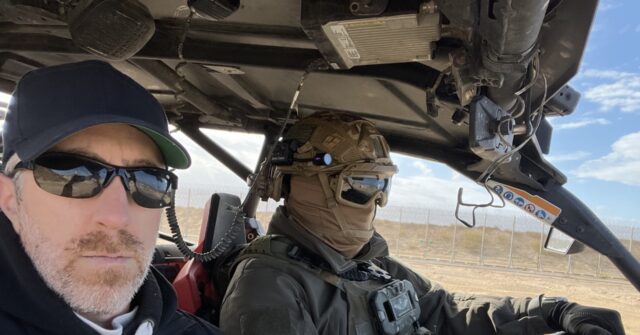On a recent visit to the northern border of Gaza, Breitbart News accompanied a rapid-response Israeli tactical unit known as Yatar, which operates independently but collaborates with the Israel Defense Forces (IDF). This elite force, utilizing off-road Maverick vehicles designed for swift maneuverability in challenging terrains, plays a crucial role in both border protection and urban warfare scenarios. Yatar is strategically active not only along the Gaza front but also on the Lebanese border where it patrols against potential infiltrations by Hezbollah, navigating regions without physical barriers like fences. These capabilities position Yatar as a vital asset in Israel’s ongoing military operations aimed at countering threats from both Gaza and Lebanon.
The unit’s operations are underscored by the recent violent history of the area. The journey began at Zikim Beach, a stark reminder of the October 7th assault when Hamas militants, arriving by sea, launched a brutal attack on innocent civilians and targeted an IDF search-and-rescue base. The beach serves as an emblematic site where the dangers of naval infiltrations have been starkly presented, warning of potential vulnerabilities along Israel’s coastline. As the visiting team progressed through military checkpoints, they passed clusters of humanitarian aid trucks waiting for permission to enter Gaza. This highlighted the challenges posed by Hamas, which has a history of commandeering such assistance and redistributing it for profit among the local population.
Following the beach, the convoy traversed rocky terrain, reaching a towering military fence separating Gaza from Israel. This fence, notably breached by Hamas operatives during their October attacks, serves as a physical and symbolic barrier that is crucial to Israel’s national security. The guided tour provided insights into the remnants of previous battles. Empty shell casings littering the ground were stark reminders of the ongoing hostilities marking this region and the persistent risk posed by sniper fire, which remained a constant threat during the visit.
From elevated vantage points, Yatar personnel were able to survey significant sections of northern Gaza, including key areas such as Beit Lahiya and Jabaliya. Observers noted a stark visualization of conflict continuing to unfold, with the sound of detonations and smoke plumes signaling ongoing military actions. Despite the quotes and images depicting destruction, the article details a strategic shift in the IDF’s approach to combatting Hamas, now primarily functioning as a guerrilla force across the region. The aim is to strategically tighten control over Gaza by expanding the Netzarim Corridor, gradually increasing pressure on Hamas and seeking to mitigate the dire hostage situation involving 101 Israeli nationals reportedly held captive in undisclosed areas.
Efforts by the IDF have reportedly been hampered by logistical challenges, including delays in weapon and equipment shipments from the U.S., forcing Israeli forces to adapt tactically and change strategies. The article mentions the ongoing reliance on reservists who have extended their time in service while balancing the complexities of urban warfare against a resilient enemy. Amidst an anticipated ceasefire in Lebanon, which could redirect military focus back to Gaza, the urgency surrounding the hostages’ plight looms large, framing the narrative of the conflict with a human dimension and ethical considerations.
The future remains uncertain as the conflict intensifies and shifts in tactics become necessary. The Yatar unit stands ready at the forefront of this ongoing struggle, equipped for rapid response and adaptive warfare techniques in a complex and perilous environment. Given the dire humanitarian implications and the thickening ethical landscape as combat continues, the need for effective military strategy and negotiation remains paramount. The violence and chaos from Gaza symbolize broader geopolitical issues, which encapsulate the struggle for safety, stability, and peace in the region, resting on the delicate balance of military might, strategic pressures, and hostage negotiation prospects.
Joel B. Pollak, the Senior Editor-at-Large for Breitbart News, sheds light on the complexities of this ongoing conflict and provides critical insights into the activities and initiatives of Yatar and the IDF, highlighting the multifaceted nature of warfare in this tumultuous context. His observations aim to inform a broader audience about the realities faced by those on the ground in Israel as tensions persist amidst the continuous struggle for security and peace.

